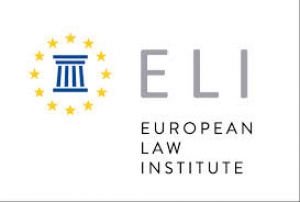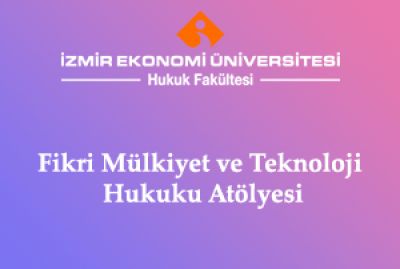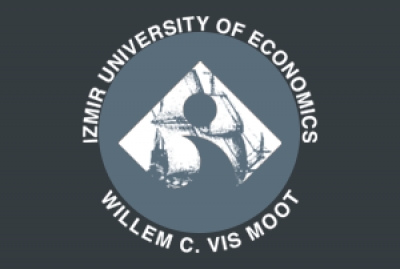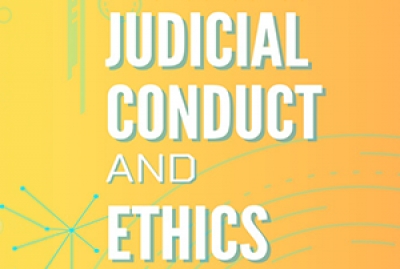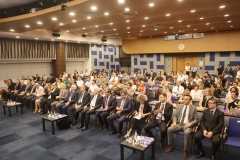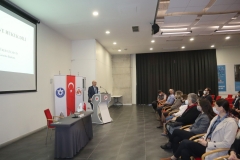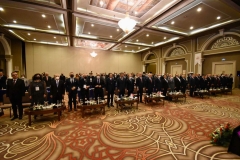
Faculty of Law
LAW 444 | Course Introduction and Application Information
| Course Name |
Intellectual Property Law
|
|
Code
|
Semester
|
Theory
(hour/week) |
Application/Lab
(hour/week) |
Local Credits
|
ECTS
|
|
LAW 444
|
Fall/Spring
|
3
|
0
|
3
|
5
|
| Prerequisites |
None
|
|||||
| Course Language |
English
|
|||||
| Course Type |
Elective
|
|||||
| Course Level |
First Cycle
|
|||||
| Mode of Delivery | - | |||||
| Teaching Methods and Techniques of the Course | - | |||||
| Course Coordinator | ||||||
| Course Lecturer(s) | ||||||
| Assistant(s) | - | |||||
| Course Objectives | The course aims at providing basic and applicable knowledge on Intellectual Property Law at an international level. |
| Learning Outcomes |
The students who succeeded in this course;
|
| Course Description | The course starts with an introduction regarding the definition of IP law, its ambit, its relations with other areas of law, and basic concepts and principles prevailing this area. Based on this structure, all subcategories in IP law will be analysed respectively in each week. These are copyright, patent, trademark, geographical indications, and designs. Among these, the most comprehensive part is the copyright which will last until the midterms. The course will be taught at an international level under a curriculum reviewed and suggested by the World Intellectual Property Organisation (WIPO). The subjects which will be discussed within the scope of this course are general principles on IP Law, copyright, work, authorship, economic and moral rights of authors, copyright agreements, licence, infringing acts, related rights, patent, term of protection, inventor, invention, rights of patent owners, trademarks, rights of trademark owners, geographical indications, appellation of origins, traditional product, design, rights attributable to design owner, the Madrid System, the Hague System, the Lisbon System, the organization of WIPO, Bern Convention, Paris Convention, TRIPS, international agreements, registration systems, registration application, new varieties of plants, and traditional knowledge. |
|
|
Core Courses |
X
|
| Major Area Courses | ||
| Supportive Courses | ||
| Media and Management Skills Courses | ||
| Transferable Skill Courses |
WEEKLY SUBJECTS AND RELATED PREPARATION STUDIES
| Week | Subjects | Related Preparation |
| 1 | Introduction to IP Law | WIPO Intellectual Property Handbook, 2nd Ed., WIPO Publications, Geneva, 2008, p. 4-12. |
| 2 | International Systems and International Agreements | Bern Convention, Paris Convention, TRIPS |
| 3 | Copyright, Work, Authorship | WIPO Intellectual Property Handbook, 2nd Ed., WIPO Publications, Geneva, 2008, p. 40-67. |
| 4 | Economic Rights of Authors | WIPO Intellectual Property Handbook, 2nd Ed., WIPO Publications, Geneva, 2008, p. 40-67. |
| 5 | Moral Rights of Authors | WIPO Intellectual Property Handbook, 2nd Ed., WIPO Publications, Geneva, 2008, p. 40-67. |
| 6 | Copyright Agreements, Limitations & Exceptions, Term of Protection | WIPO Intellectual Property Handbook, 2nd Ed., WIPO Publications, Geneva, 2008, p. 40-67. |
| 7 | Related Rights | WIPO Intellectual Property Handbook, 2nd Ed., WIPO Publications, Geneva, 2008, p. 40-67. |
| 8 | Midterm | |
| 9 | Trademarks, Trademark Registration, Term of Protection | WIPO Intellectual Property Handbook, 2nd Ed., WIPO Publications, Geneva, 2008, p. 67-105. |
| 10 | Geographical Indications, Registration, Term of Protection | WIPO Intellectual Property Handbook, 2nd Ed., WIPO Publications, Geneva, 2008, p. 120-129. |
| 11 | Designs, Design Owner, Registration, Term of Protection | WIPO Intellectual Property Handbook, 2nd Ed., WIPO Publications, Geneva, 2008, p. 112-118. |
| 12 | Inventions, Patent Owner, Patent Application, Patentability Requirements, Term of Protection | WIPO Intellectual Property Handbook, 2nd Ed., WIPO Publications, Geneva, 2008, p. 17-40 |
| 13 | New Varieties of Plants | The International Convention for the Protection of New Varieties of Plants |
| 14 | Protection of Traditional Knowledge | |
| 15 | Review of semester | |
| 16 | Final Exam |
| Course Notes/Textbooks | WIPO Intellectual Property Handbook, 2nd Ed., WIPO Publications, Geneva, 2008. Intellectual Property and Genetic Resources, Traditional Knowledge and Traditional Cultural Expressions, WIPO Publications, Geneva 2015. |
| Suggested Readings/Materials | Bak, Başak, "Patentability under Turkish Patent Law According to the Decree Law No. 551 on the Protection of Patent Rights", Procedia - Social and Behavioural Sciences, Vol. 195, (2015) :301. Bently, Lionel, and Brad Sherman. Intellectual property law. Oxford University Press, USA, 2014. Gervais, Daniel J., ed. International intellectual property: a handbook of contemporary research. Edward Elgar Publishing, 2015. Bodenhausen, Georg Hendrik Christiaan. Guide to the Application of the Paris Convention for the Protection of Industrial Property, as Revised at Stockholm in 1967. Vol. 611. WIPO, 1968. Dinwoodie, Graeme B., and Rochelle C. Dreyfuss. "Designing a Global Intellectual Property System Responsive to Change: The WTO, WIPO, and Beyond." Hous. L. Rev. 46 (2009): 1187. Dworkin, Gerald. "The Moral Right of the Author: Moral Rights and the Common Law Countries." Colum.-Vla JL & Arts 19 (1994): 229. Rigamonti, Cyrill P. "Deconstructing moral rights." Harv. Int'l LJ 47 (2006): 353. Ricketson, Sam, and Jane C. Ginsburg. International copyright and neighbouring rights, v 1-2. Oxford Univ. Press, 2005. The WIPO Performance and Phonograms Treaty (WPPT) WIPO Copyright Treaty (WCT) Rome Convention for the Protection of Performers, Producers of Phonograms and Broadcasting Organisations Lisbon Agreement for the Protection of Appellations of Origin and their International Registration Hague Agreement Concerning the International Deposit of Industrial Designs Patent Cooperation Treaty (PCT) UPOV Convention (1991 Act) |
EVALUATION SYSTEM
| Semester Activities | Number | Weigthing |
| Participation | ||
| Laboratory / Application | ||
| Field Work | ||
| Quizzes / Studio Critiques | ||
| Portfolio | ||
| Homework / Assignments |
1
|
40
|
| Presentation / Jury | ||
| Project | ||
| Seminar / Workshop | ||
| Oral Exams | ||
| Midterm | ||
| Final Exam |
1
|
60
|
| Total |
| Weighting of Semester Activities on the Final Grade |
1
|
60
|
| Weighting of End-of-Semester Activities on the Final Grade |
1
|
40
|
| Total |
ECTS / WORKLOAD TABLE
| Semester Activities | Number | Duration (Hours) | Workload |
|---|---|---|---|
| Theoretical Course Hours (Including exam week: 16 x total hours) |
16
|
3
|
48
|
| Laboratory / Application Hours (Including exam week: '.16.' x total hours) |
16
|
0
|
|
| Study Hours Out of Class |
15
|
3
|
45
|
| Field Work |
0
|
||
| Quizzes / Studio Critiques |
0
|
||
| Portfolio |
1
|
20
|
20
|
| Homework / Assignments |
0
|
||
| Presentation / Jury |
0
|
||
| Project |
0
|
||
| Seminar / Workshop |
0
|
||
| Oral Exam |
0
|
||
| Midterms |
0
|
||
| Final Exam |
1
|
30
|
30
|
| Total |
143
|
COURSE LEARNING OUTCOMES AND PROGRAM QUALIFICATIONS RELATIONSHIP
|
#
|
Program Competencies/Outcomes |
* Contribution Level
|
||||
|
1
|
2
|
3
|
4
|
5
|
||
| 1 | To be able to possess the knowledge in legal terminology, concepts and principles. |
X | ||||
| 2 | Solves the legal problems with an analytic and integral point of view. |
X | ||||
| 3 | Evaluates the legal knowledge and abilities obtained with a critical approach. |
X | ||||
| 4 | Evaluates the developments in legal theory and practice by monitoring local, international and interdisciplinary dimensions. |
X | ||||
| 5 | Is conscious of social, professional and scientific principles of ethic behaviour. |
X | ||||
| 6 | Takes responsibility in solving problems by creative and innovative thinking. |
X | ||||
| 7 | Interprets the sources of law by ways of legal methodology. |
X | ||||
| 8 | To be able to interpret the legal norms with a sense of justice respectful to human rights and in the light of principles of democratic, secular and social state of law. |
X | ||||
| 9 | To be able to use the daily scientific sources and court judgments in the framework of life time learning approach. |
X | ||||
| 10 | Informs the related persons and institutions about legal matters both verbally and in written. |
X | ||||
| 11 | Monitors the daily legal information/court decisions and interacts with the colleagues in a foreign language (“European Language Portfolio Global Scale” Level B1). |
X | ||||
| 12 | Uses the information and communication technology together with the computer programs in a level required by the area of law (“European Computer Driving Licence, Advanced Level”). |
X | ||||
*1 Lowest, 2 Low, 3 Average, 4 High, 5 Highest
NEWS |ALL NEWS

The only team from Izmir
Izmir University of Economics (IUE) Faculty of Law students Arda Ataoğuz, Göktuğ Şirin and Ömer Ateş represented our country in Willem C.
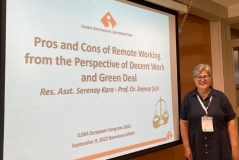
Joint paper of res. asst. Serenay Kara and Prof. Dr. Zeynep Şişli was presented at ILERA European Congress 2022
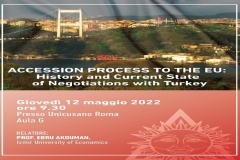
Dr. Ebru Akduman gave seminars at Niccolo Cusano University, Rome on European Union-Turkey Relations.
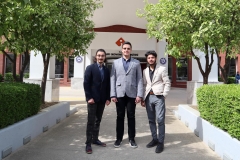
‘Mock trial’ brought an award
Oğuzhan Yıldırım, İnan Bakır and Süleyman Gürkan Emre, students of Faculty of Law, Izmir University of Economics (IUE), won the third prize
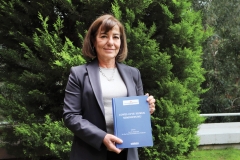
They wrote the book of corona law
Izmir University of Economics (IUE) Faculty of Law, which organized a symposium to clarify different issues such as "protection of personal data",





